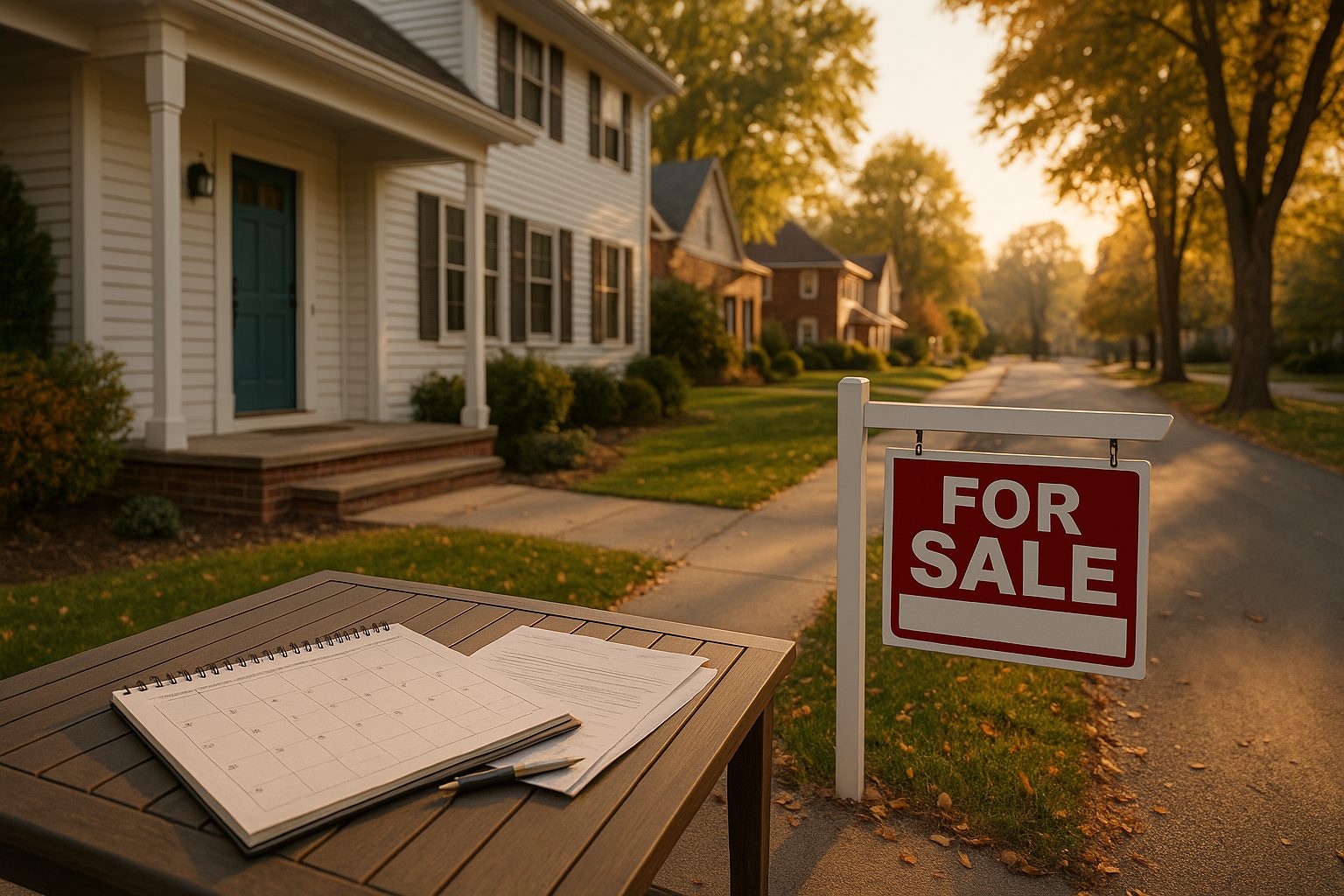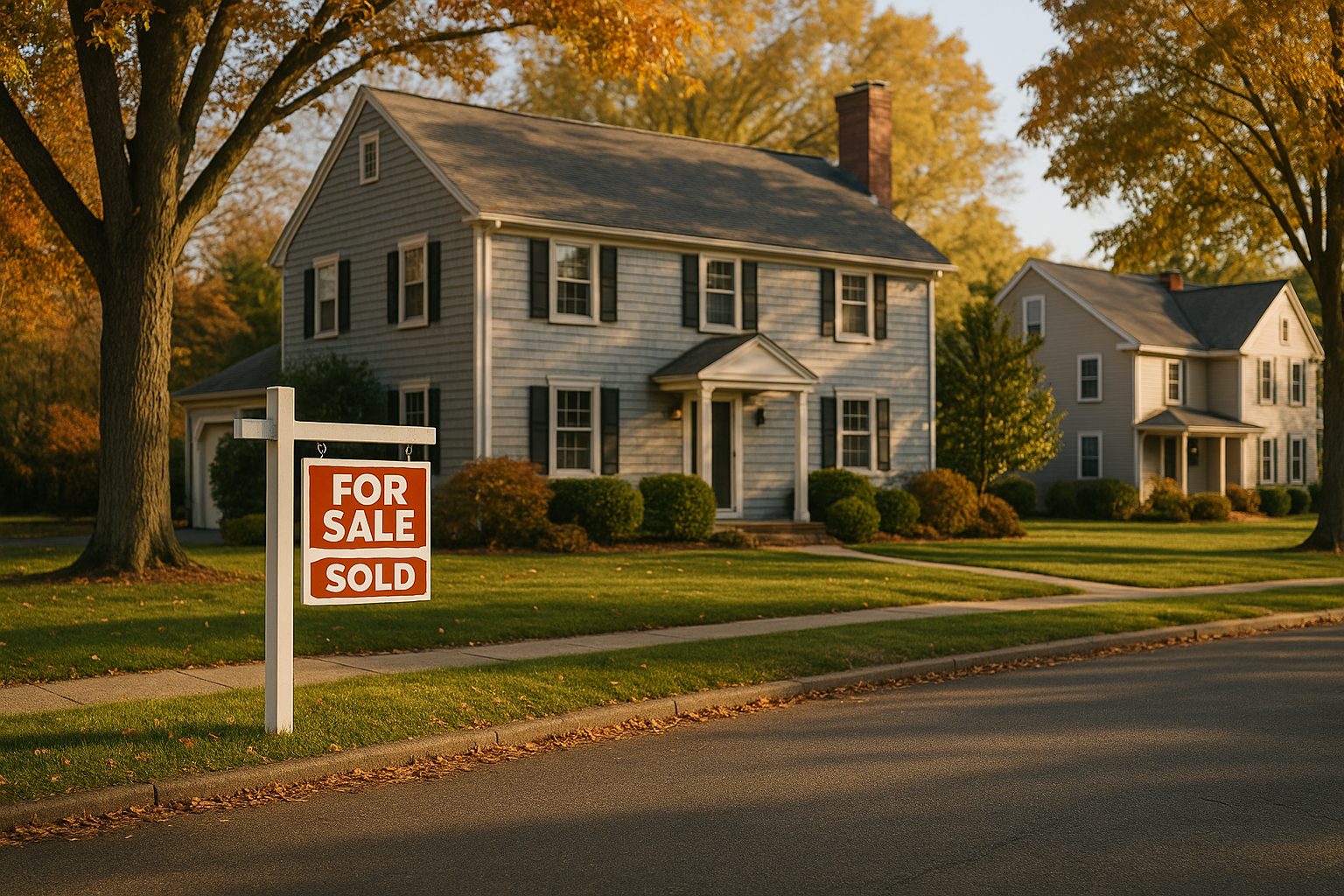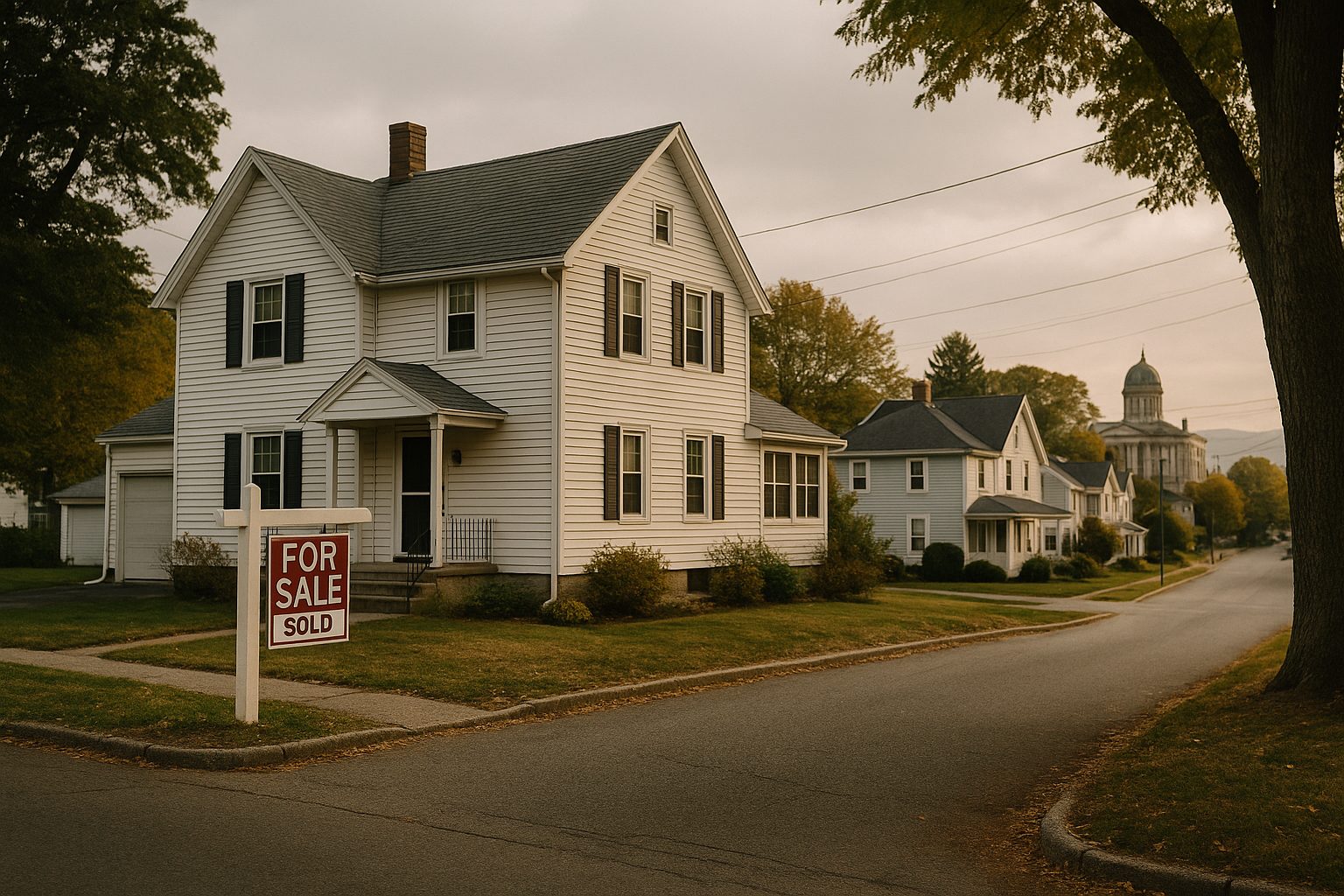So you bought a place in Upton, MA, and now you are wondering when to cash out. Six months? Two years? A decade? The answer is not a neat one-size-fits-all number, but you can pin it down once you blend a little market data with your own life plans.
Below is the roadmap I share with clients when they start whispering about “maybe putting the house on the market.” Read it, run the numbers, then decide if this is the season to sell or the season to hunker down and build more equity.
Quick snapshot of the Upton market
• Upton sits snugly between Worcester and Boston, pulling in commuters who like tree-lined streets more than city sirens.
• Median sale price, spring 2024: right around $640,000, up roughly 5 % year over year.
• Average time on market: 46 days, which is a 192 % jump from last year’s insane bidding-war pace.
• Inventory: still tight, yet buyers are pickier than they were in 2021.
Why does that matter? Because the “hold time” that made sense during 2020’s frenzy is different from today’s slower dance. You need enough equity to cover fees, maybe ride out a longer listing period, and still walk away with profit.
Thinking about a fast flip?
Why owners try it
1. Job relocation or divorce drops out of the blue.
2. They spot a different house that fits better.
3. They believe prices will keep rocketing and want a quick gain.
What you need to clear first
• Closing costs when you bought: appraisal, inspection, origination, title. Most people forget those the minute they unpack boxes. They were real money.
• Selling costs: prepping the home, marketing, maybe staging, commissions (usually 5 %–6 % in Worcester County), state excise tax, attorney fees, moving trucks.
Stack both sets of fees and you are easily at 8 %–10 % of the sale price. On a $640,000 house, that is $50,000 to $64,000. You need at least that much appreciation plus your down payment back before you can even break even.
Fast-flip math example
Bought for $600,000 with 10 % down in mid-2022
Total cash in: $60,000 down + $10,000 closing = $70,000
Current value after two years: maybe $660,000
Appreciation: $60,000
Selling costs at 8 %: $52,800
Net before mortgage payoff: a hair over $7,000
That is not profit. After the mortgage payoff, you are probably writing a check at closing. Painful.
Not to mention…
• You lose the capital-gains tax exclusion because you must live in the property two of the last five years. Sell early, and any gain is taxable.
• Mortgage amortization is interest-heavy the first few years. You have barely dented principal, so payoffs are bigger than owners expect.
Verdict: short holds rarely work in Upton now, unless the market jumps another 10 % and you renovated smartly. Otherwise, you are feeding the transaction-cost monster.
Why hanging on a bit longer pays
Four to seven years is where the math starts smiling. Here is why:
1. Mortgage principal finally shrinks
By year four, each payment chips more principal than interest. Equity snowballs faster.
2. Capital-gains shield kicks in
Live there at least two years and, when you sell, the first $250,000 in gain if single, $500,000 if married, is tax-free. That is huge.
3. Renovations have time to mature
The fresh kitchen you installed in 2023 will be “updated” instead of “brand new,” but buyers still pay up for it. And you got to enjoy it while living there.
4. Market cycles do their thing
Central Massachusetts tends to appreciate 3 %–5 % yearly in calm periods. Stay six years and you could be 20 %–25 % ahead even without dramatic spikes.
Upton specifics
• New mixed-use development near Main Street is scheduled for 2025, projected to lift walkability scores.
• Milford Regional continues expanding, feeding professional jobs into nearby towns.
• Commuter-rail upgrades out of Grafton keep Upton attractive for Boston workers who want a 45-minute ride instead of a 90-minute grind.
All three trends suggest moderate, predictable value growth through 2027. That favors holding unless your life demands a move sooner.
The math every Upton owner should run
I hand clients a simple worksheet. Grab yours and plug in local numbers.
1. Estimate current market value
Use recent sales on streets that look like yours, not Zillow fairy tales. A quick chat with a local agent never hurts.
2. Subtract loan payoff
Log in to your mortgage servicer, snag the exact payoff number. Round numbers lie.
3. Subtract selling costs
Use 8 % for a safe cushion. If home prices keep inching up, you may recoup some of that through buyer concessions, but assume you will eat it.
4. Compare that net to cash you invested
If the net is not at least 10 %–15 % higher than your original down payment plus closing costs, think twice about rushing to list.
5. Factor lifestyle gains
Equity is not everything. Maybe selling trims a brutal commute or kills crushing debt elsewhere. Assign real dollar values to those stressors and put them in the sheet. Sometimes quality of life beats pure profit.
Personal factors that trump any chart
Data feels comforting, but your life is not a spreadsheet.
• Kids entering middle school? Stability could matter more than an extra $20k.
• Job remote forever? You can widen the search radius for your next place, maybe lock in cheaper property taxes elsewhere.
• Aging parents moving in? A ranch with no stairs may become priceless.
• Marriage fizzled? Selling fast and splitting equity cleanly can save attorney fees and headaches.
In other words, if the home no longer fits the story you are living, profit becomes only one slice of the decision pie.
Trends to watch through 2025
1. Mortgage rates
Every quarter-point swing either squeezes or expands buyer budgets. Higher rates usually flatten prices for six-to-nine months, then sellers adjust list prices downward or toss in concessions. Lower rates ignite demand again. If rates dip below 6 % next year, expect a mini sellers’ market.
2. Inventory levels
Worcester County sits at roughly two months of supply. A balanced market is six. If supply inches up to four or five months, you may face stiffer competition.
3. New-construction pipeline
A handful of 55-plus townhome projects in neighboring towns could siphon off downsizers who might have eyed your Cape. Keep an eye on permits filed with the town clerk.
4. Boston tech layoffs or booms
Layoffs cool the commuter influx, booms reignite it. Watch quarterly earnings for the big names along Route 128.
5. State transfer-tax talk
Beacon Hill has floated adding a surtax on luxury transactions. Anything that fiddles with net proceeds changes your optimal timing. Stay plugged in to legislation.
Ready to map out your exit?
If you bought less than two years ago, sit tight unless life is truly forcing the move. Use the time to pay down a chunk of principal, freshen paint, maybe tackle that dated guest bath.
Hit the three-to-five-year mark and run the breakeven worksheet. If you will clear at least 10 % over what you put in, and the next chapter of your life is calling, list with confidence.
Own seven years or more? You are likely sitting on healthy equity, a capital-gains cushion, and a home buyers still want. Craft a strategy: pre-inspection, stellar marketing, and a realistic price. The 46-day average is only an average. Well-prepped homes in Upton still snag offers inside two weeks.
Need a second set of eyes on the numbers? Reach out. I have walked hundreds of Upton owners through the math, the staging stress, and the negotiations. You can step onto the market clear-eyed, confident, and ready for whatever comes next.











